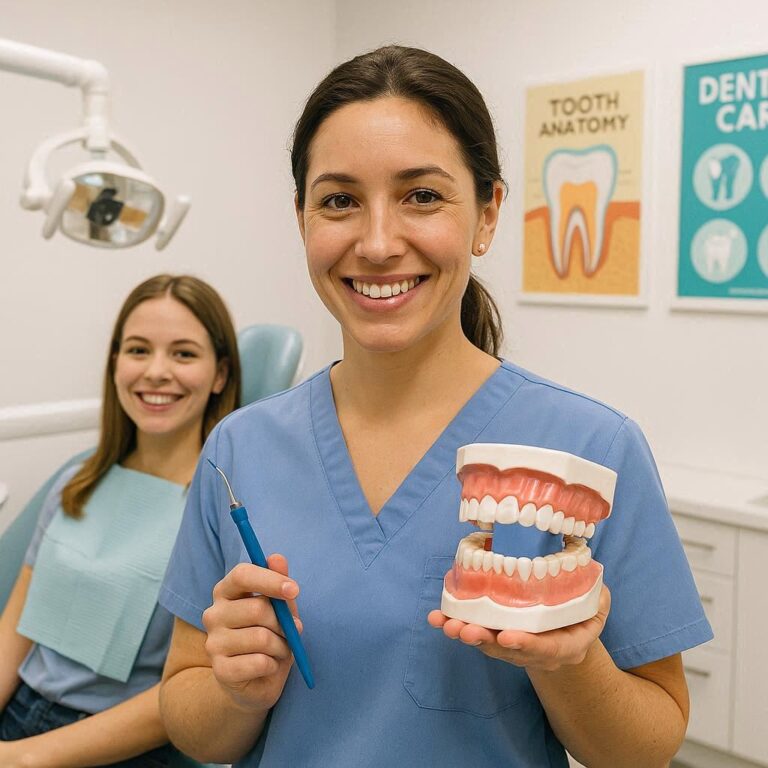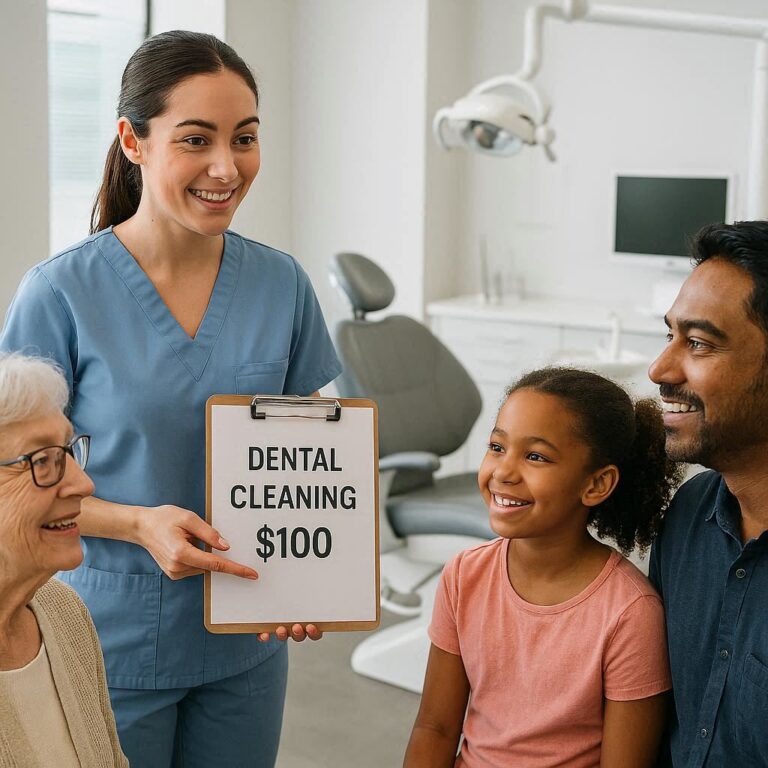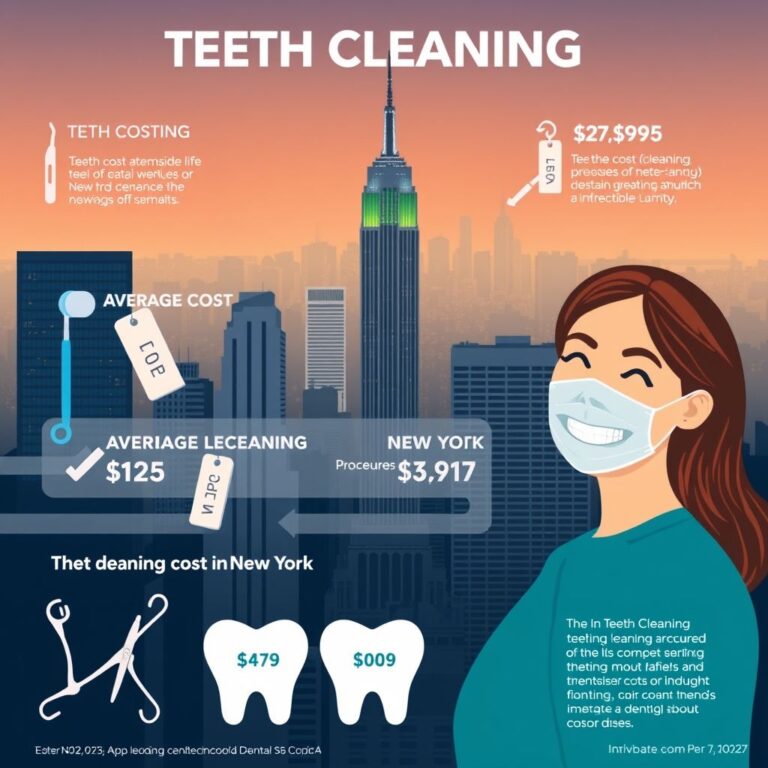teeth cleaning at dentist cost and benefits
A bright, healthy smile is more than just an aesthetic asset—it’s a crucial part of your overall well-being. While brushing and flossing at home are essential, professional teeth cleaning at the dentist plays a vital role in maintaining optimal oral health.
Many people avoid dental cleanings due to fear, cost concerns, or simply underestimating their importance. However, neglecting professional cleanings can lead to serious dental issues, including gum disease, tooth loss, and even systemic health problems like heart disease and diabetes.
This comprehensive guide will explore everything you need to know about teeth cleaning at the dentist—its benefits, costs, procedures, and why it’s a non-negotiable part of your healthcare routine.

2. What Is Professional Teeth Cleaning?
Professional teeth cleaning, also known as dental prophylaxis, is a preventive procedure performed by a dentist or dental hygienist to remove plaque, tartar (calculus), and surface stains from teeth. Unlike at-home brushing, professional cleanings reach areas that are difficult to clean and help prevent gum disease and cavities.
3. Types of Dental Cleanings
A. Routine Dental Cleaning (Prophylaxis)
-
Recommended every 6 months for individuals with healthy gums.
-
Removes plaque and tartar above the gumline.
-
Includes polishing to remove surface stains.
B. Deep Cleaning (Scaling and Root Planing)
-
Required for patients with gum disease (gingivitis or periodontitis).
-
Involves cleaning below the gumline to remove bacteria and tartar.
-
May require local anesthesia due to sensitivity.
C. Periodontal Maintenance
-
Follow-up treatment for patients with a history of gum disease.
-
Typically done every 3–4 months to prevent recurrence.
4. Why Is Professional Teeth Cleaning Important?
Even with excellent oral hygiene, plaque can harden into tartar, which cannot be removed by brushing alone. Tartar buildup leads to:
-
Gum inflammation (gingivitis)
-
Tooth decay
-
Bad breath (halitosis)
-
Bone loss in advanced cases
Regular cleanings prevent these issues and keep your smile healthy.
5. Benefits of Regular Teeth Cleaning
A. Prevents Cavities and Tooth Decay
-
Removes plaque before it erodes enamel.
B. Reduces Risk of Gum Disease
-
Early-stage gingivitis is reversible with professional cleaning.
C. Early Detection of Dental Problems
-
Dentists can spot cavities, oral cancer, and other issues early.
D. Fresher Breath and Whiter Teeth
-
Removes bacteria that cause bad breath.
-
Polishing eliminates surface stains.
E. Boosts Overall Health
-
Linked to lower risks of heart disease, stroke, and diabetes.
6. What to Expect During a Teeth Cleaning Appointment
-
Initial Examination – The dentist checks for signs of decay or gum disease.
-
Plaque and Tartar Removal – Using scalers, the hygienist removes buildup.
-
Polishing and Flossing – A gritty toothpaste polishes teeth, followed by flossing.
-
Fluoride Treatment (Optional) – Strengthens enamel to prevent cavities.
7. How Often Should You Get Your Teeth Cleaned?
-
Every 6 months – For most people with good oral health.
-
Every 3–4 months – For those with gum disease or high cavity risk.
8. Teeth Cleaning Cost: Factors That Influence Pricing
| Factor | Impact on Cost |
|---|---|
| Location | Urban areas cost more than rural clinics. |
| Type of Cleaning | Deep cleaning costs more than routine cleaning. |
| Insurance Coverage | Reduces out-of-pocket expenses. |
| Additional Treatments | X-rays or fluoride add to the cost. |
Average Costs:
-
Routine Cleaning: $75–$200 (without insurance)
-
Deep Cleaning: $150–$350 per quadrant
-
Periodontal Maintenance: $120–$300 per visit
9. Does Dental Insurance Cover Teeth Cleaning?
Most insurance plans cover two cleanings per year at 80–100%. Check your policy for details.
10. How to Save Money on Teeth Cleaning
-
Use dental discount plans (e.g., CareCredit).
-
Visit dental schools for low-cost cleanings.
-
Look for promotions at local clinics.
11. DIY vs. Professional Teeth Cleaning: Which Is Better?
While at-home care is essential, only professionals can remove tartar and detect early problems.
12. Common Myths About Teeth Cleaning Debunked
-
Myth: “Cleanings weaken teeth.”
Fact: They strengthen enamel by removing harmful deposits. -
Myth: “Bleeding gums mean you should avoid cleanings.”
Fact: Bleeding indicates gum disease, which requires cleaning.
13. Potential Risks of Skipping Dental Cleanings
-
Increased cavities
-
Gum disease progression
-
Tooth loss
-
Higher long-term dental costs
14. Conclusion
Professional teeth cleaning is a vital part of oral health, preventing cavities, gum disease, and systemic health issues. While costs vary, insurance and discounts make it affordable. Regular visits ensure a healthy, confident smile for years to come.
15. Frequently Asked Questions (FAQs)
Q1: Does teeth cleaning hurt?
Most cleanings are painless, but deep cleaning may cause mild discomfort.
Q2: How long does a cleaning take?
Typically 30–60 minutes, depending on tartar buildup.
Q3: Can teeth cleaning whiten teeth?
It removes surface stains but won’t bleach teeth like whitening treatments.
Q4: Is teeth cleaning safe during pregnancy?
Yes, and it’s recommended to prevent pregnancy gingivitis.


